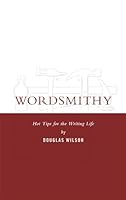Writing Well - Part 4 - Writing Style

It is the stuff about you that is odd that is interesting. So, don’t think to much about how you are supposed to do it, or what the genre convetions are. Just try to amuse yourself.
Another way to phrase it: the best writing tend to be when you surrender to your nature. This is hard to do!
Here is a classic pattern: you try really hard to do
... See moreCultivating a timeless and enduring writing voice is inevitable when you write from your gut, enjoy the process, and say what you really mean.
This will transcend all the bullshit trends and fads, ensuring your content remains relevant and influential over time
This will transcend all the bullshit trends and fads, ensuring your content remains relevant and influential over time
Alex Mathers • 11 good reasons to develop a distinguishable writing voice
Style is all about delivery, and it is a blend of clarity, kindness, and refinement. Your Style is about purity of expression, and requires you overcome the human tendency to imitate others. Style also has a direct relationship to substance, and it needs to complement it and match it, just as one must feel good in the clothes that one wears. Your
... See more